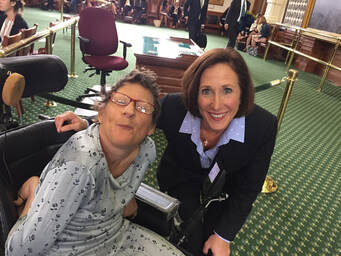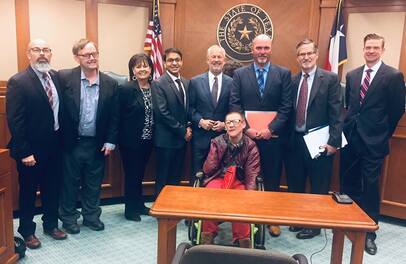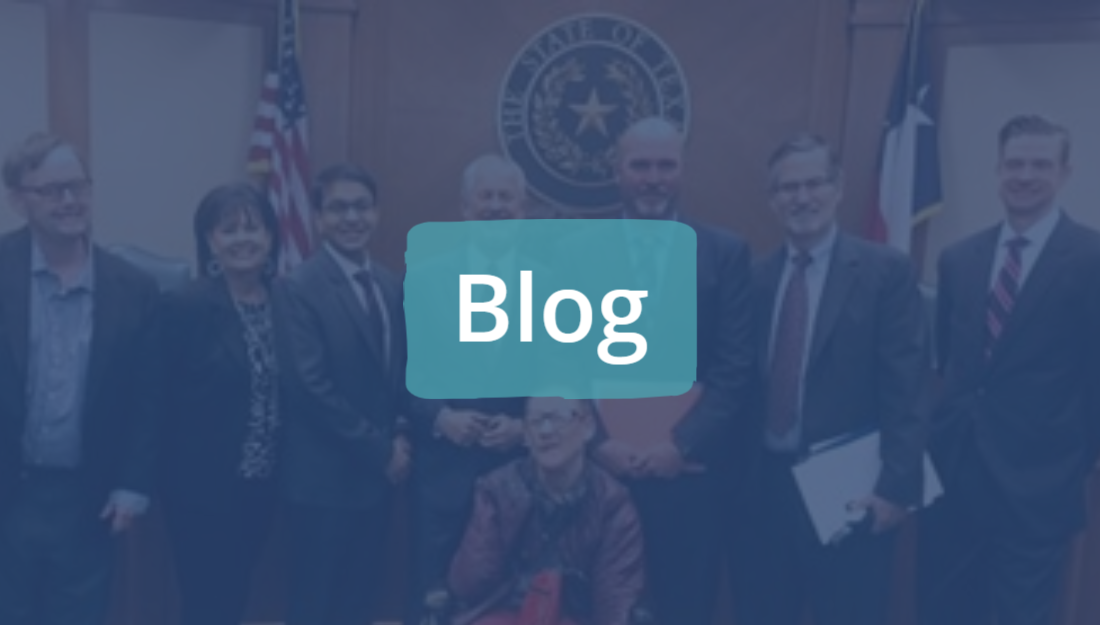How Advocates Brought Dental Access to Medicaid Adults
Dennis Borel
Executive Director
Coalition of Texans With Disabilities

As the executive director at the Coalition of Texans with Disabilities (CTD), I interact with many people with disabilities. Poor oral health is endemic and obvious, particularly among adults with disabilities living in the community. It’s common to see missing or broken teeth and even the complete lack of teeth. Frankly, I got tired of seeing people I care about in this condition and began to do research on how this can be addressed. CTD is an advocacy organization and my thoughts led to public policy.
Very-low-income people with disabilities can get health coverage through Texas Medicaid. Children, adults in institutions, and a small percentage of adults in the community have a dental benefit. Many people react in disbelief when learning that most adults with disabilities in Medicaid community care do not have access to a dentist. This leads to very bad outcomes, like resorting to an emergency room when in severe dental pain. The treatment there is not dental, only antibiotics and painkillers, often opioids. Some people are in such bad shape they must be hospitalized, and a few actually die from complications. What caused this? Simply, untreated cavities, a treatment that is usually done in a dental clinic. That’s not all. Poor oral health leads to elevated heart disease, diabetes, hypertension, stroke, cancer and more. These facts make a strong argument for adding a dental benefit.
Texas leadership believe in limited government and low services. Texas ranks 49th in community services for people with disabilities and remains among the minority of states not adopting Medicaid Expansion. To succeed, we would need a collective effort. CTD is well positioned in the Capitol and would serve as advocacy lead, including bringing self-advocates, individuals with disabilities. We would need to make the business case, that requires a skilled health research organization. Texas Health Institute filled that role. Influential legislative champions had to be recruited and supported. Our top champions are Senator Lois Kolkhorst and Representative Joe Deshotel. And we needed to show broad support from other groups. That meant putting together a strong list of supporting organizations. Among those would be some obvious groups like the Texas Oral Health Coalition and the Texas Dental Association, but we went beyond and added major trade associations for doctors, hospitals, nurses, health plans and dozens of disability organizations.

It took time. In 2017, we secured a study of the issue. In 2019, we passed a bill to pilot comprehensive dental care. In 2021, after the language passed through five bills, on the last day, a preventive dental benefit was passed. This was the result of many hearings, legislative visits, and organizing. It’s not over as we will continue to monitor the rollout. Yet, the impact is huge. Around 450,000 adults with disabilities, who would have had no dental visits in their adulthood, will now be able to see a dentist every year. The smiles will look very nice indeed.

